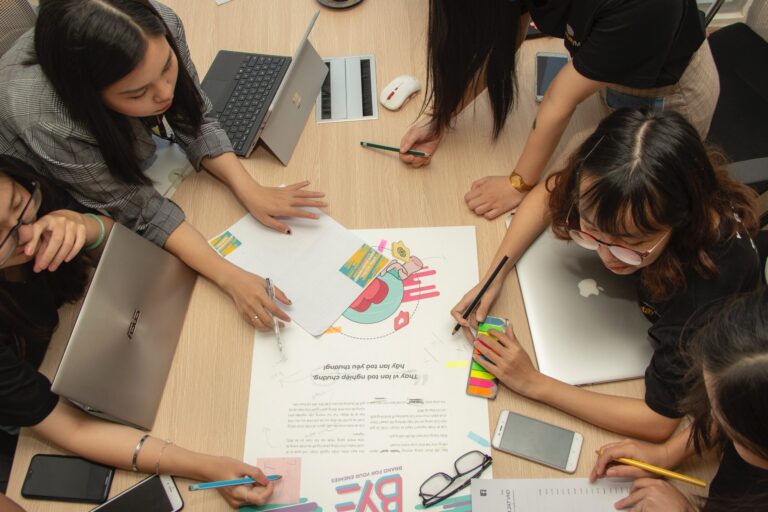The internet has altered the way we work, play, and communicate. But it’s also introduced new challenges that many parents aren’t prepared to address. Digital citizenship is one of those challenges — and it’s a big one.
What Is Digital Citizenship?
Digital citizenship means using social media responsibly and respectfully, following online laws and regulations, and being respectful to others online. The objective is to help kids learn to use technology to enhance their lives rather than hurting themselves or others.
Do you know how you’d treat someone if they were standing right next to you? That’s precisely how you should treat them when interacting with them online.
Digital citizenship also means using technology responsibly. You wouldn’t steal someone else’s car or break into their house. And neither should you use their account information without permission nor share sensitive information with others.
Finally, digital citizenship means learning to be safe on social media and other platforms where people can connect. Note that anything you post online can be shared. So, think carefully before sharing anything private.
Why Is It Timely To Teach Kids How To Be Responsible Digital Citizens?
Teaching kids about digital citizenship is essential because it helps them understand how to make good decisions online. Kids spend over eight hours on the internet daily. With this, they should know how to protect themselves and respect others online.
Dr. Nanika Coor gives parents some tips for decreasing screen time conflicts.
When you teach your child about digital citizenship, you’re helping them understand what’s appropriate and inappropriate when interacting online. When they are in a situation where someone is being mean or improper, they’ll know how to handle it. They’ll also be able to identify when someone else is misbehaving and help them stop.
Aside from teaching kids the internet’s study mechanics, help them understand the need to control and balance their internet usage. Otherwise, they’ll be easy prey for cyberbullies, scammers, and fraudsters.
How Do You Teach It?
There are many ways you can teach your kids about digital citizenship. One of the best ways is by modeling good behavior yourself. If you’re always on Facebook, make sure your child sees you posting appropriate messages that aren’t offensive or overly personal.
You can even use the Kami app as you teach your kids lessons about being good and responsible digital citizens. Another excellent method is role-playing. Have your child pretend they’ve done something wrong online. Discuss how they should have behaved differently, so they don’t repeat their mistake in real life.
Emphasize the Significance of Netiquette
The most controversial aspect of being an exemplary digital citizen is always being kind when communicating with others. When you post comments or send a digital message, it’s easier to sprout derogatory words you never use in person. This is partly the reason why cyberbullying is a problem. What adds insult to injury is that it’s rare for someone to get penalized for their misbehavior.
Parents and teachers should help kids to understand the powerful effect of written words on the recipient. Kids can learn socio-emotional skills. Parents and teachers should help each other and use relevant activities to help kids build these skills. Through these, they can easily observe etiquette online and in the real world.
Teach Kids About the Importance of One’s Privacy
Most websites ask site visitors for too many details and personal information. Your kids should know how to protect themselves and their privacy before they start sharing information online. Educate kids by showing them why the following information should be kept private:
- Email address
- Physical address
- School
- Phone number
Explain what could happen to your kids if these pieces of information fall into the wrong hands. Also, teach them how to check their social media accounts and app settings. Knowing what to share and keep private can help them stay safer offline and online.
Explain the Dangers of Viruses and Scams
A responsible digital citizen knows how a safe and secure site looks. They also know it’s dangerous to click on an ad or link unless they know where it will lead them. As a parent, your first primordial task is to ensure that devices at home are already protected. After which, teach your kids how to use antivirus software to clean and keep their devices safe.
Apart from this, it’s also important to teach them how to store and create strong, safe passwords. Explain why using a password that combines lowercase and uppercase letters with numbers and symbols is best. Encourage your kids to write their passwords in a notebook. This is necessary so that when they decide to keep a long and complex password, they can still remember them.
Scams are also rampant online, and kids have difficulty identifying them. Teach your kids a spam email’s critical features so they’ll recognize it when they see one.
Help Raise Better and Responsible Digital Citizens
Charity starts at home, and so do good manners and proper conduct. Parents are responsible for keeping their kids safe from all kinds of harm. They also have the duty of disciplining their kids to become kind and good citizens online and offline. If every parent does their share, step-by-step, they can make this world a little better than when they first encountered it.
Dr. Nanika Coor explains how to handle these unsettling situations and how to help your child develop the ability to use appropriate social behavior at the appropriate times.

